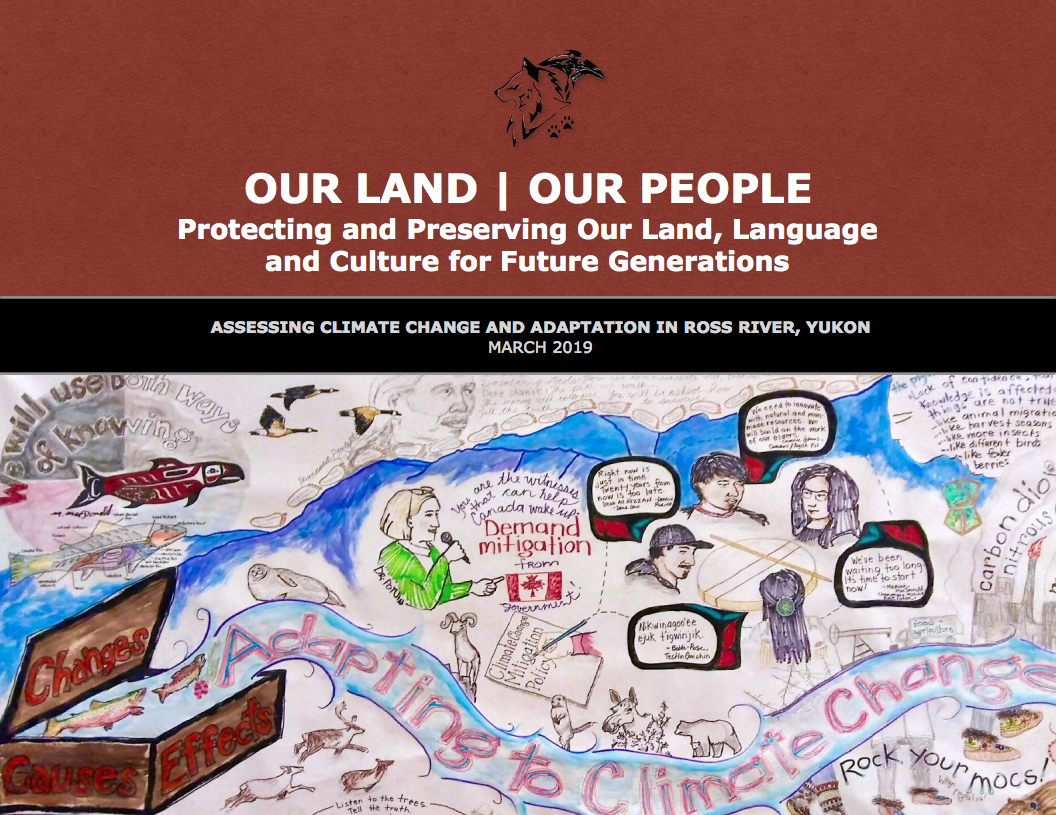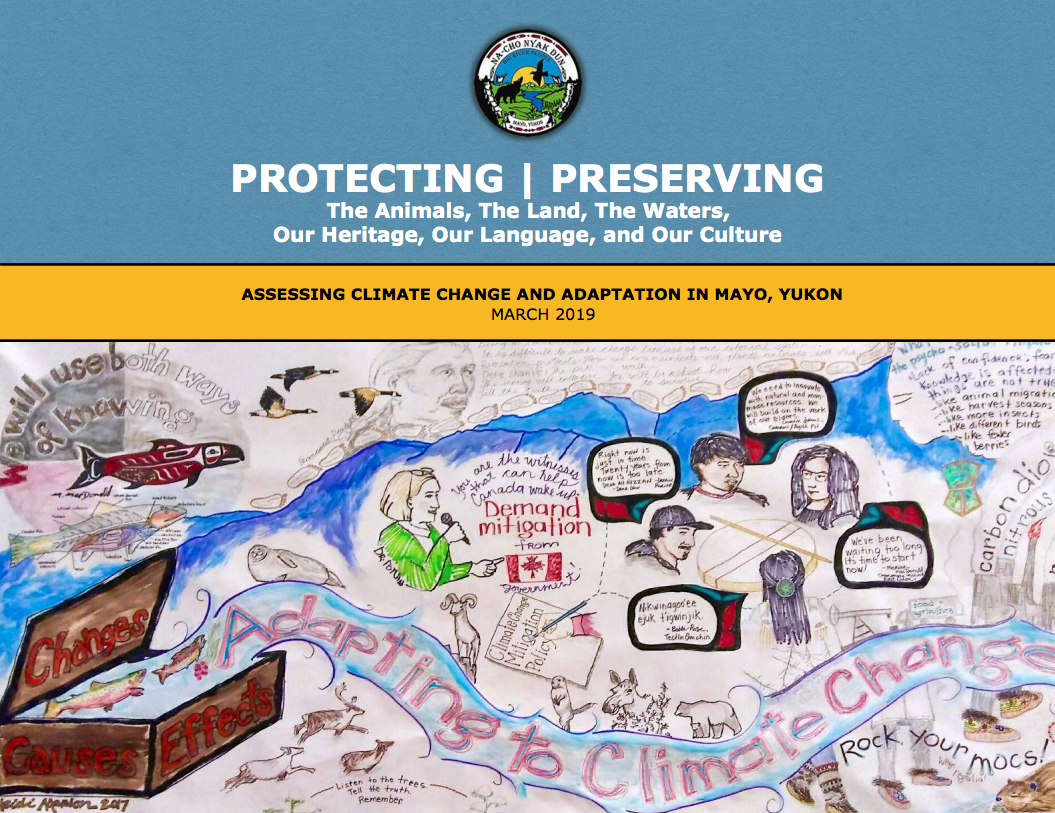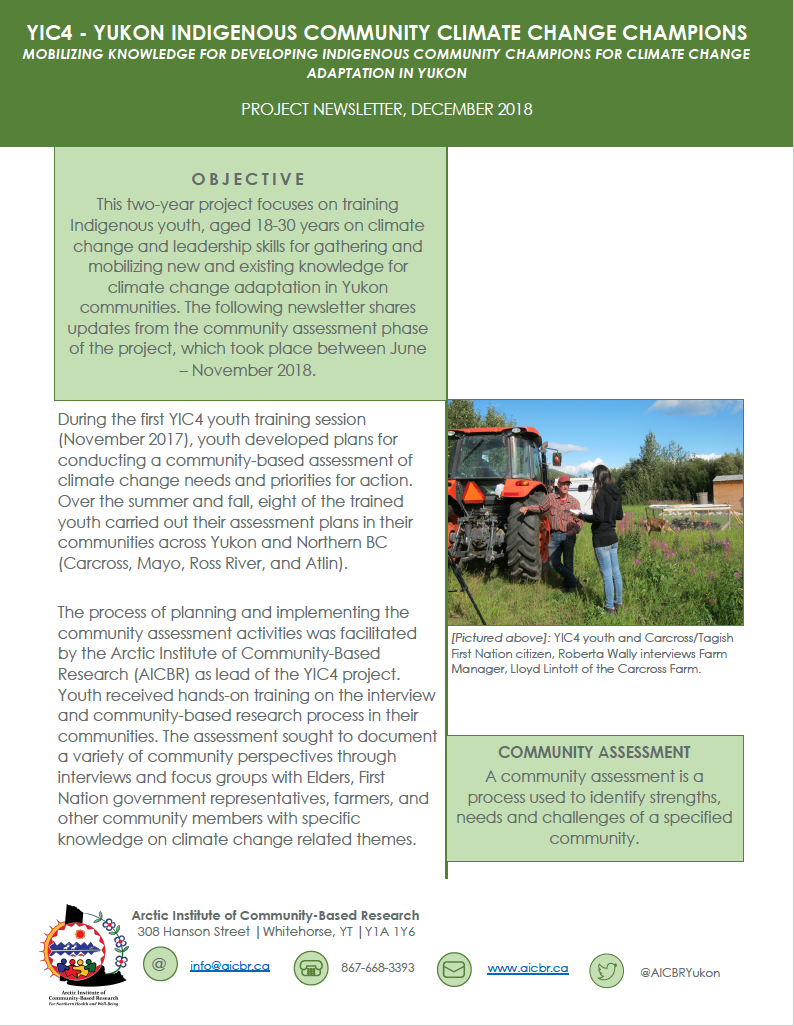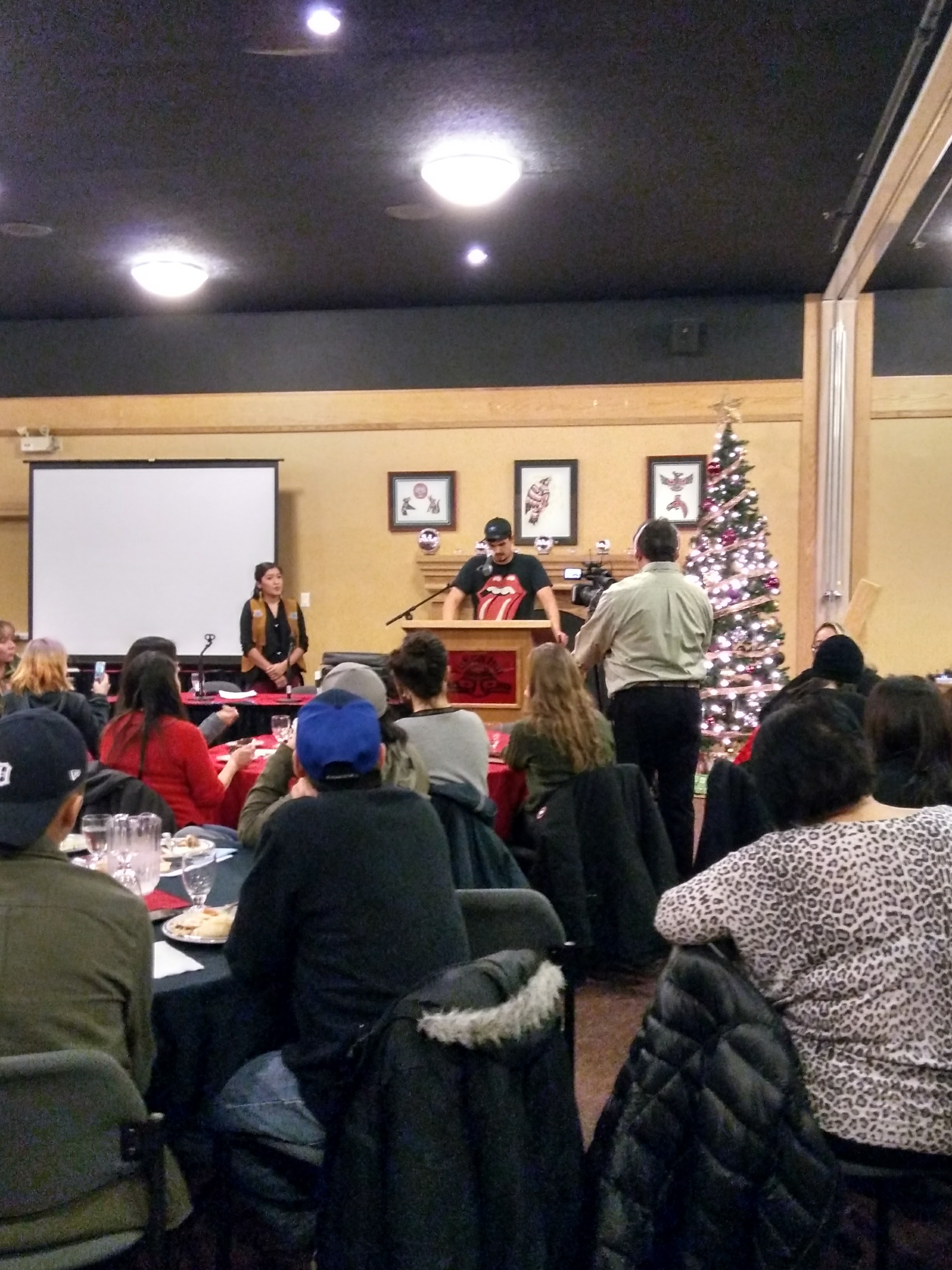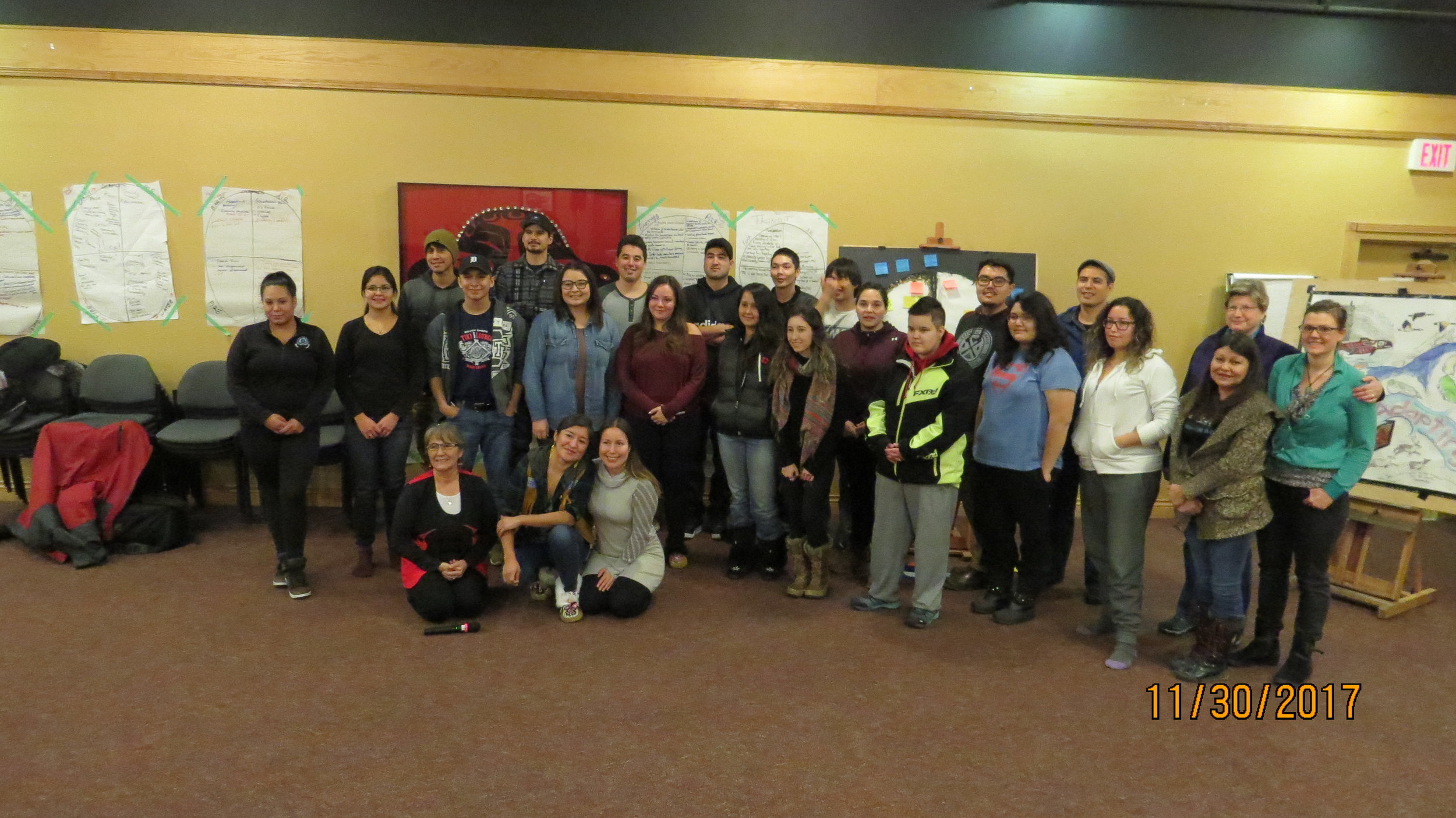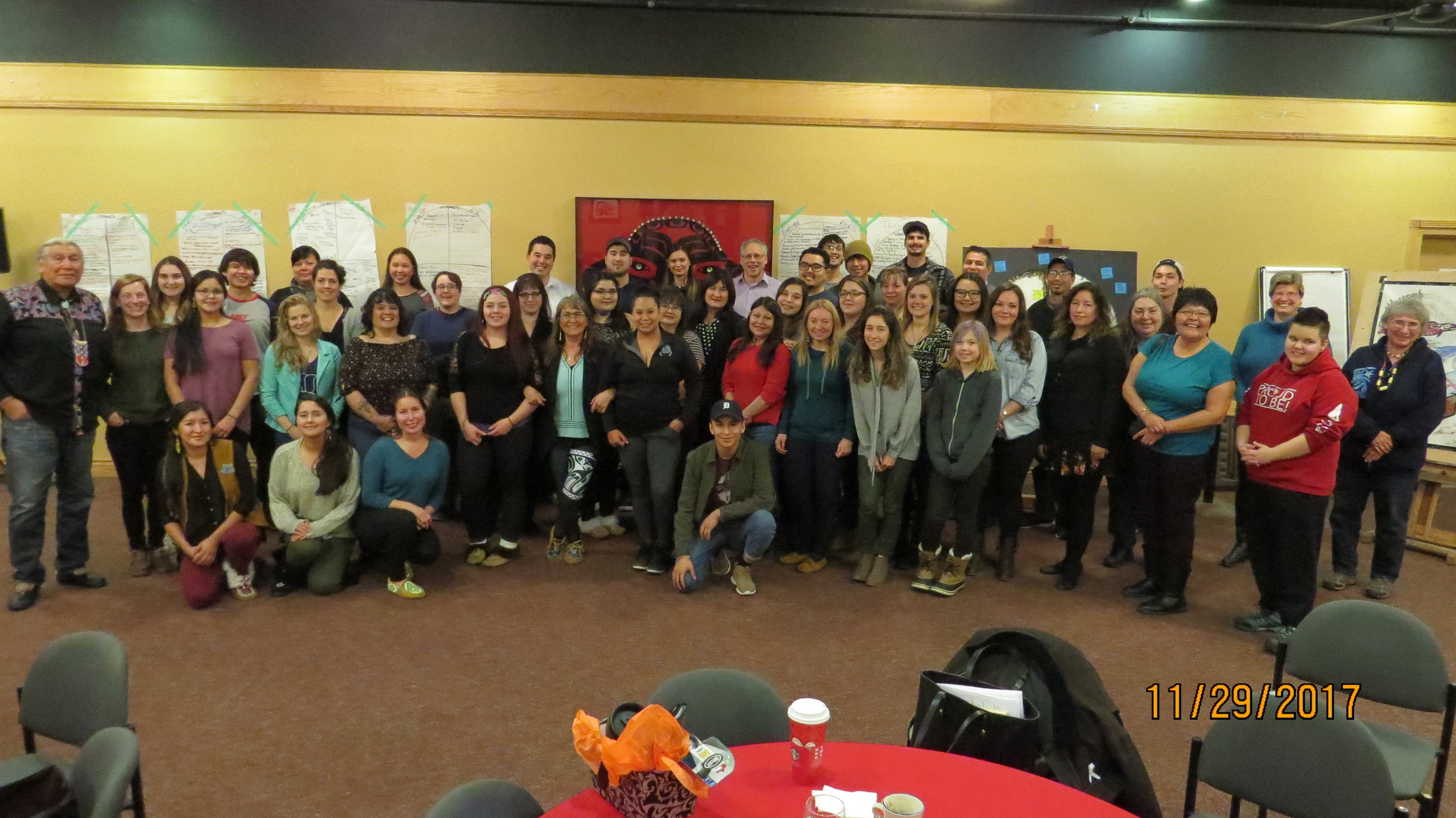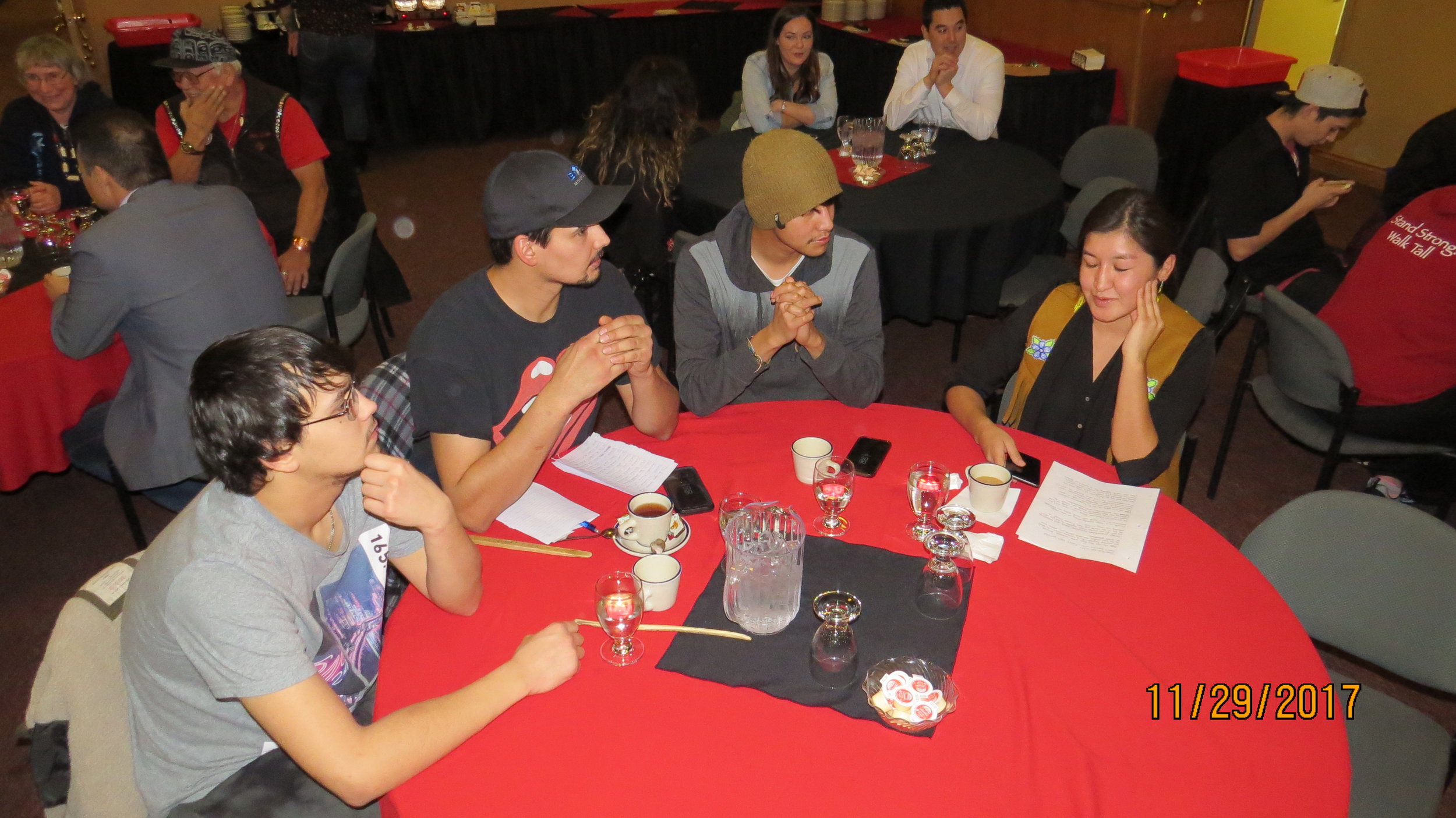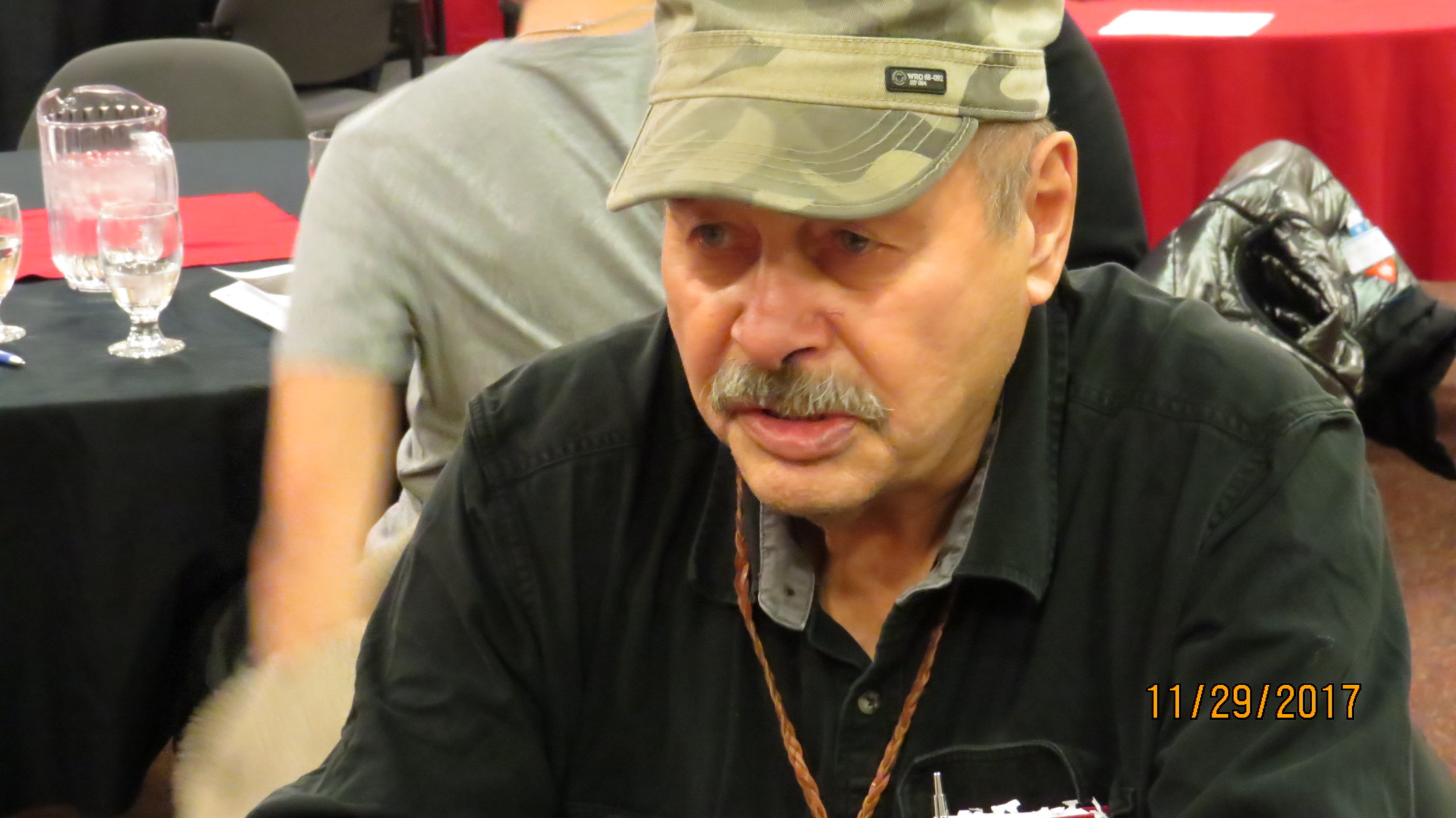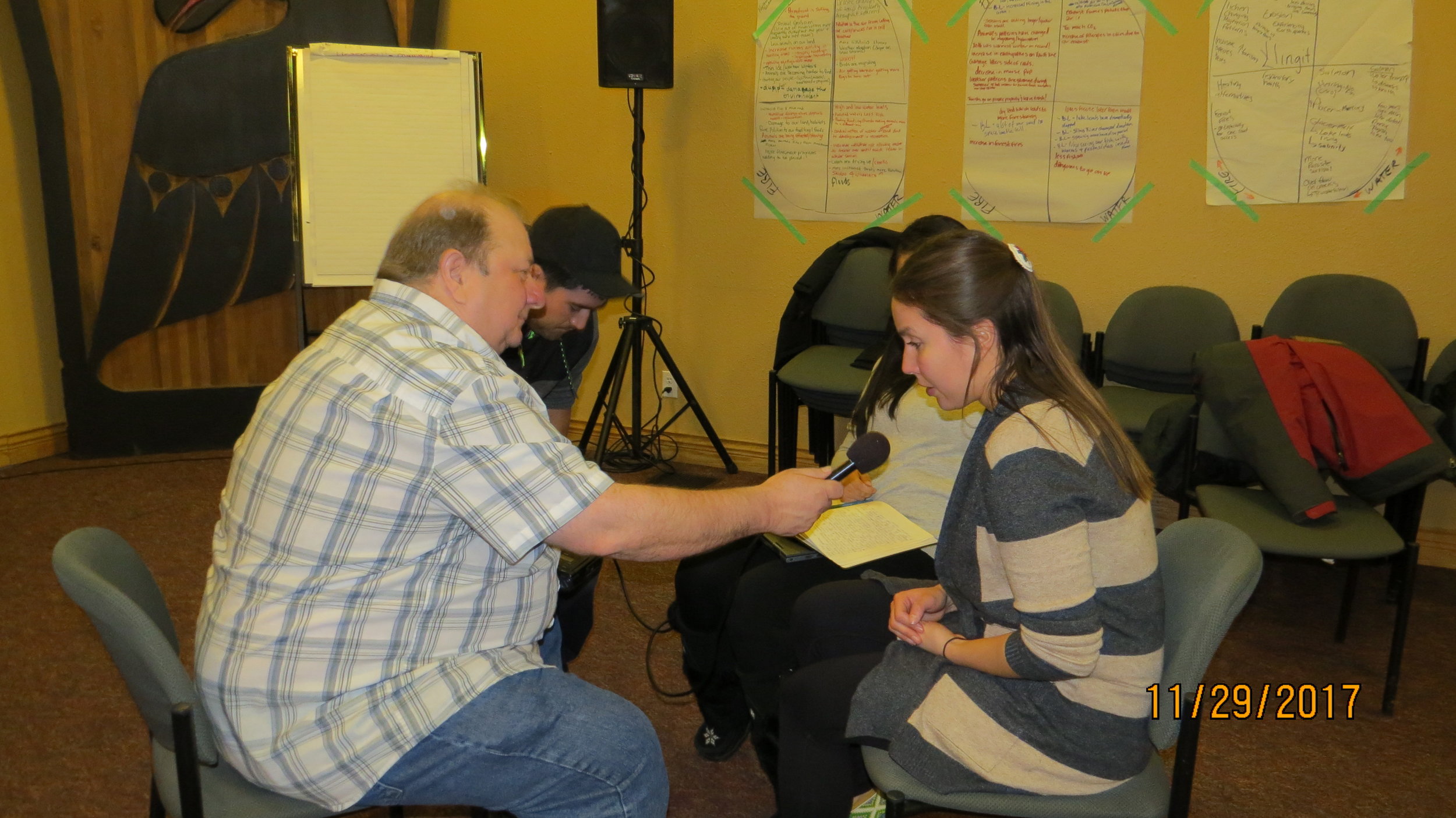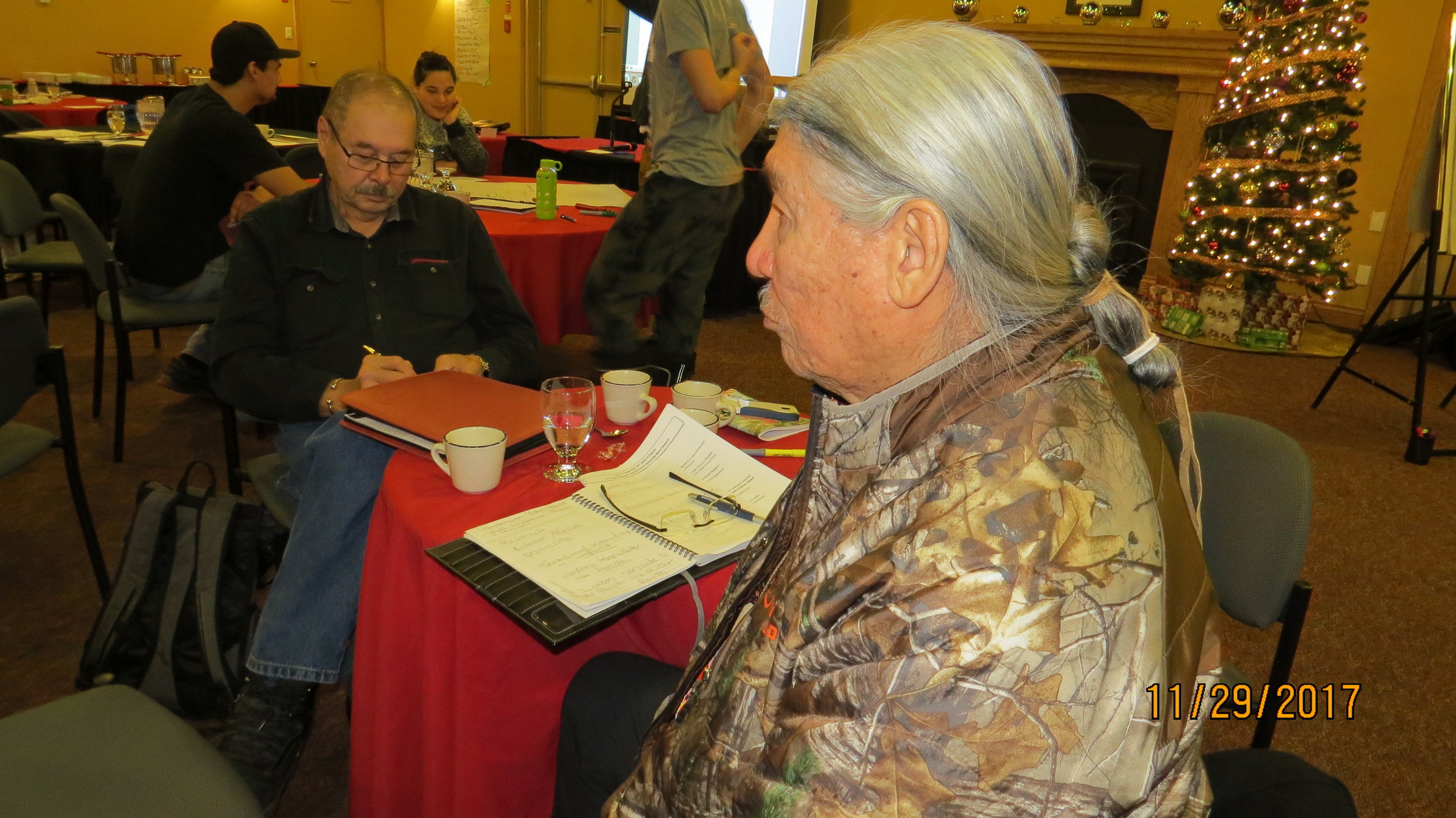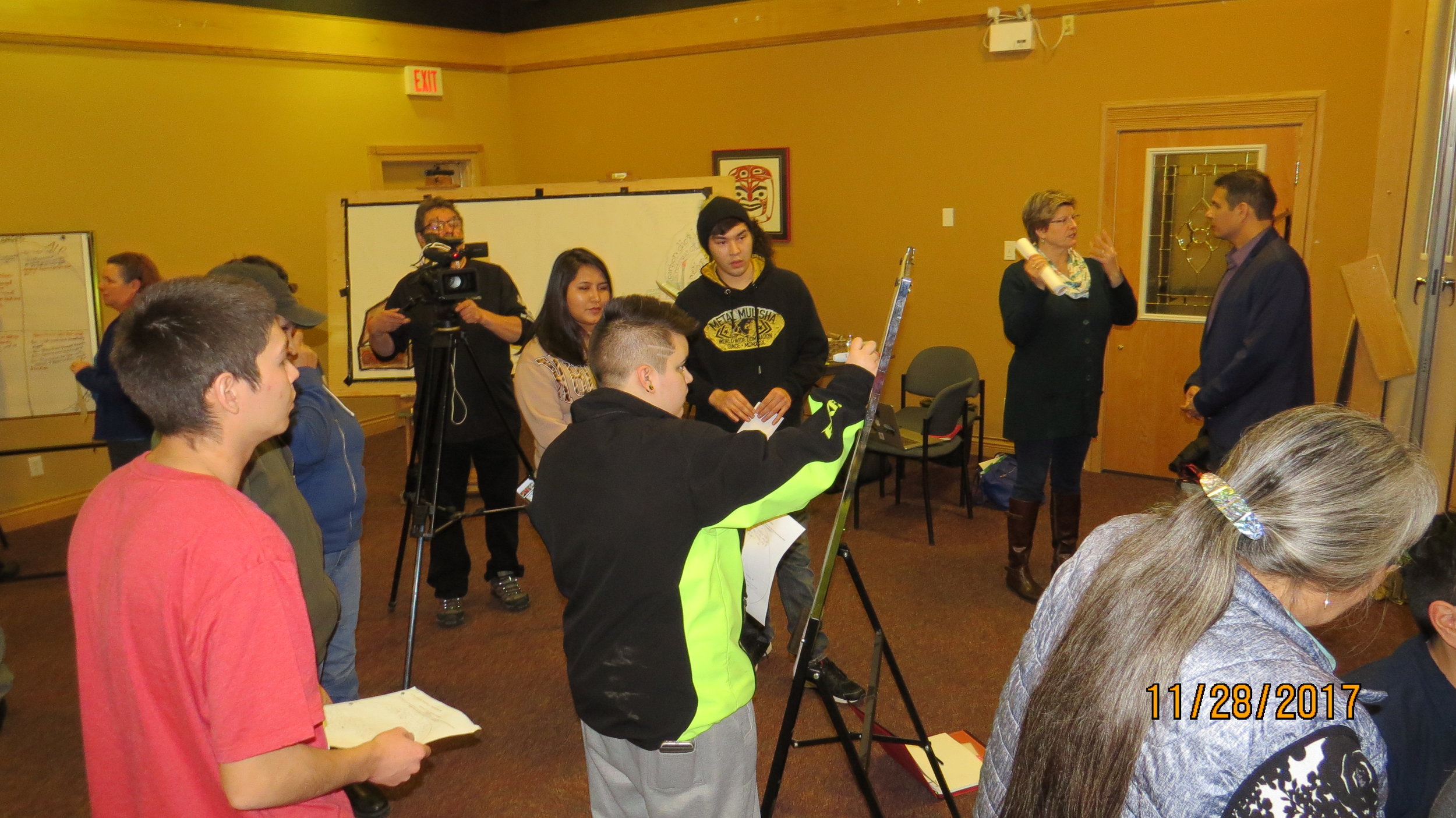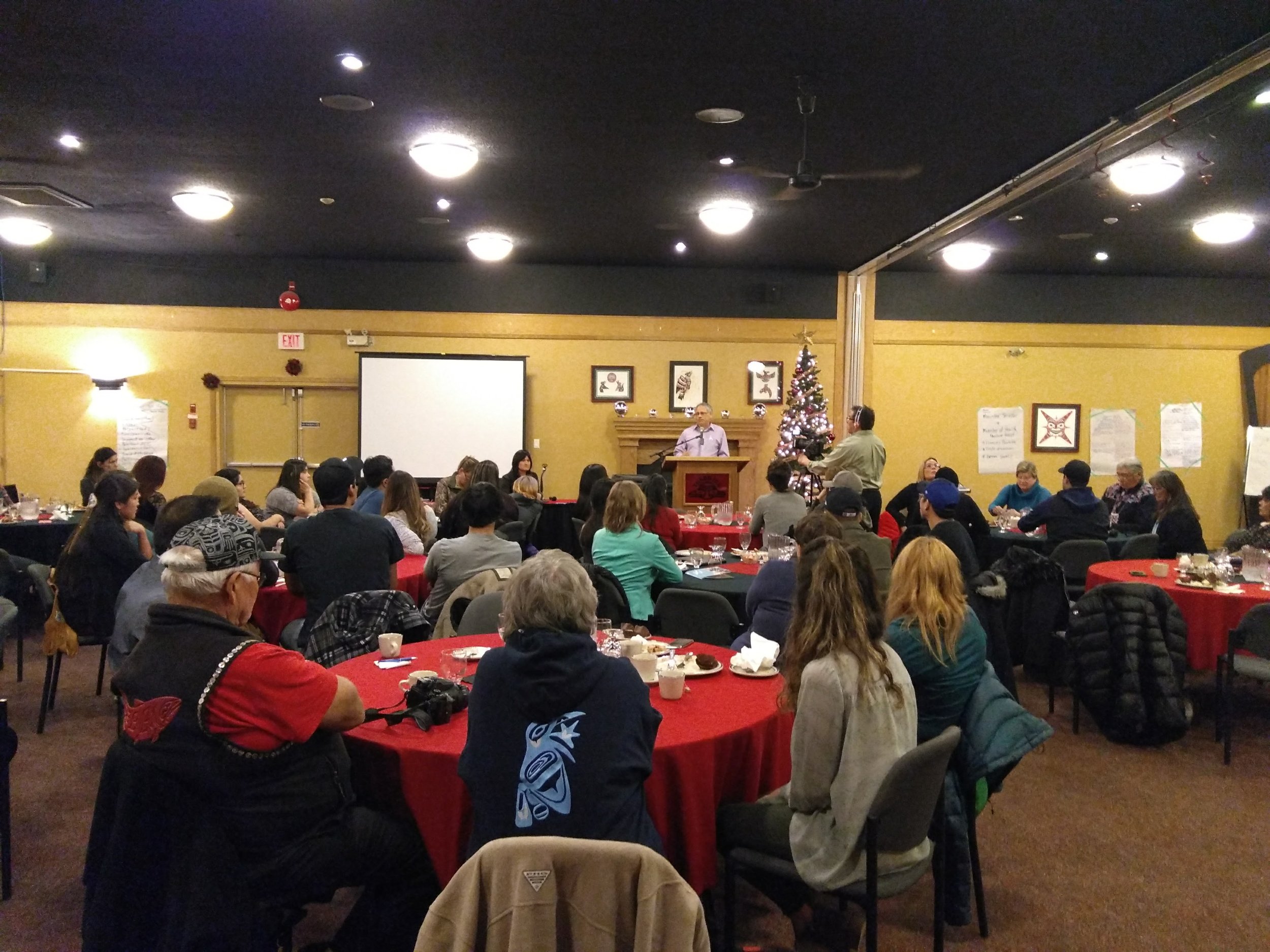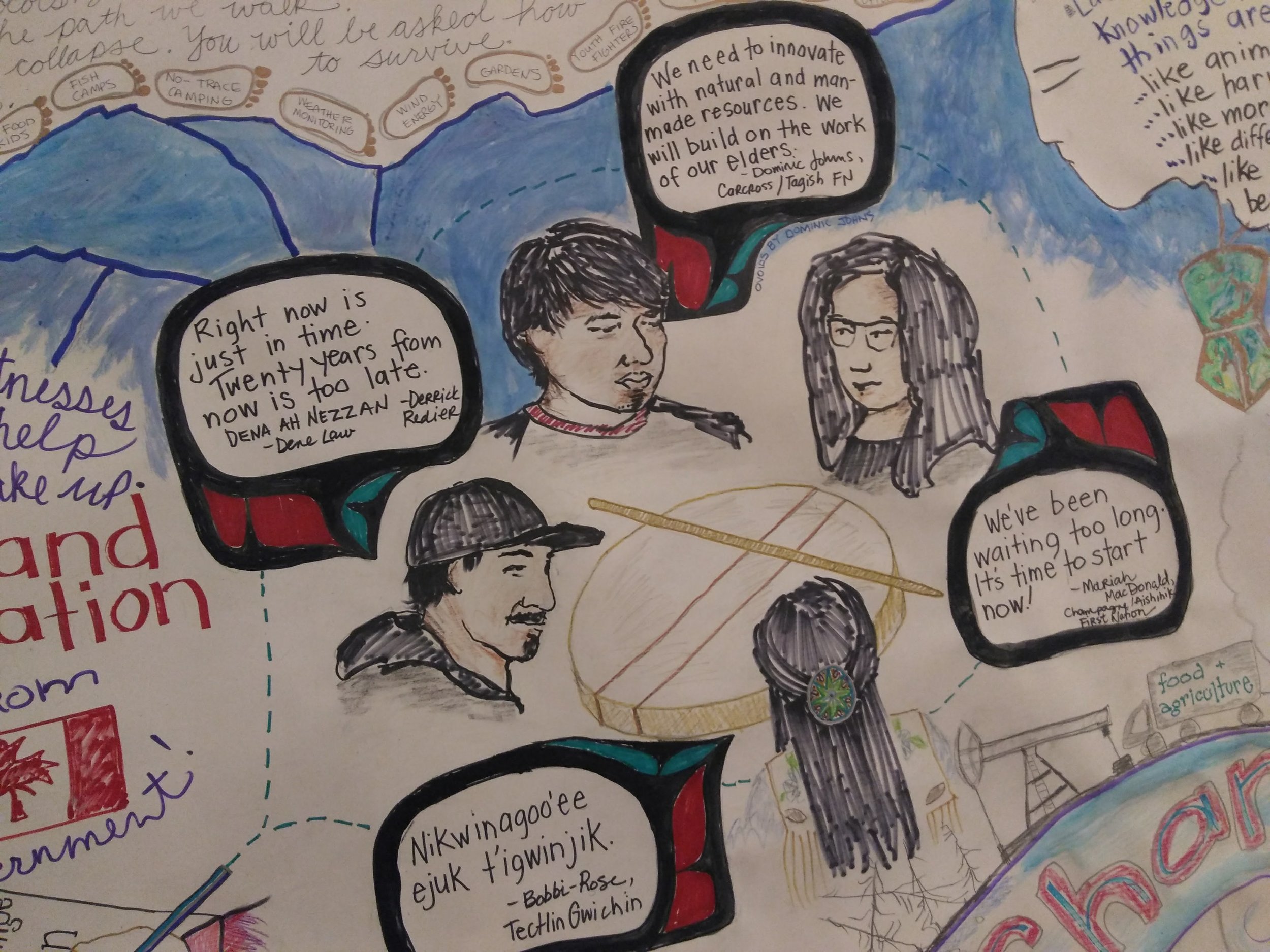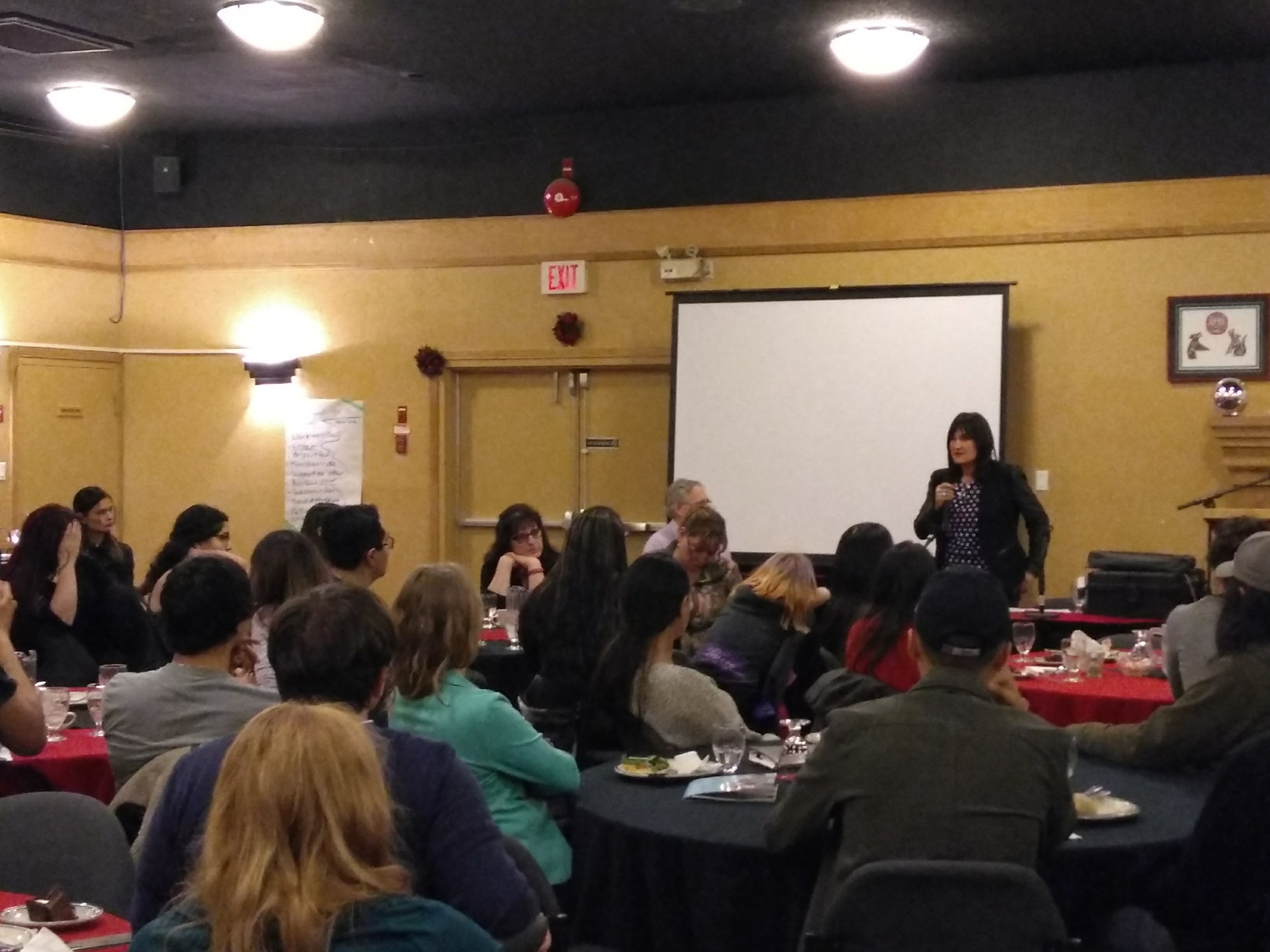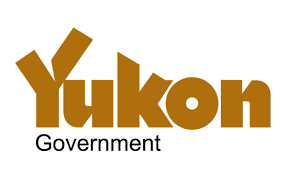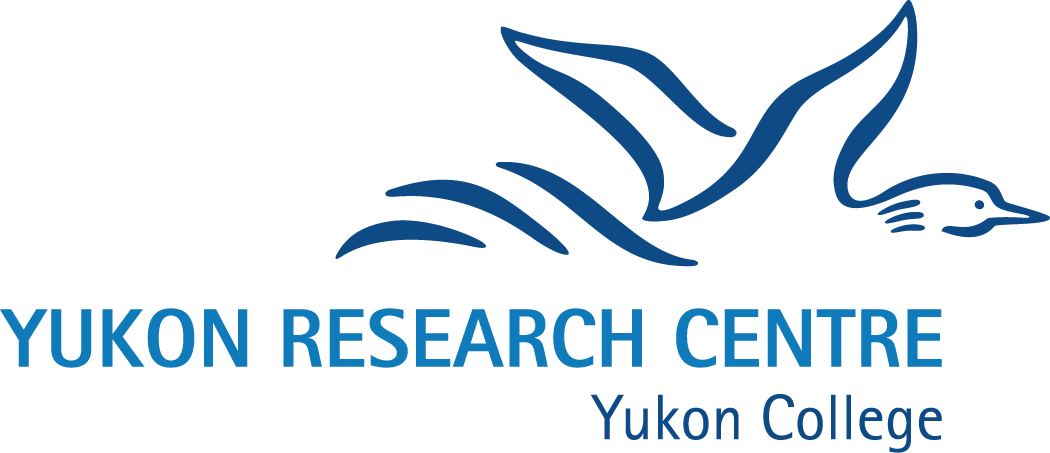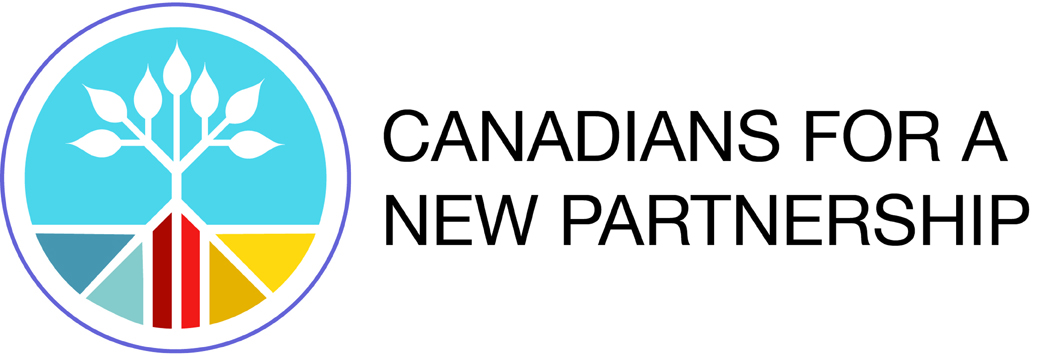YIC4 - Yukon Indigenous Community Climate Change Champions Project (2017-2019)
Mobilizing Knowledge for Developing Indigenous Community Champions for Climate Change Adaptation in Yukon
Background:
This two-year project focused on training Yukon First Nations youth, aged 18-30 years on climate change and leadership skills for gathering and mobilizing new and existing knowledge, from global, local and Indigenous perspectives, for climate change adaptation in the Yukon. In total, 41 Indigenous youth participants took part in the project (31 from Yukon First Nations communities and 9 from communities in BC, NWT and Nunatsiavut); two Renewable Resource Council members from Yukon and one youth representative from Crown-Indigenous Relations and Northern Affairs Canada (CIRNAC, formerly known as INAC) also took part. As part of the project, two training sessions were hosted in Whitehorse and four communities took part in the community-based climate change assessments phase of the project; throughout the two years, youth stayed connected through a Yukon First Nations Climate Change Adaptation Network (YFN-CAN), hosted on Facebook, which acted as a forum for further communication, learning and networking. The overall goal of this initiative was to build upon Yukon First Nations communities' capacity to respond to complex issues related to climate change and its effects on food and water security, in particular.
Phase 1
Training 1: The first training session was held at the Yukon Inn, November 2017. The curriculum focused on building a strong foundation of knowledge about the causes and effects of and adaptation strategies for climate change from global to local perspectives. Various trainers from across the territory and Canada helped to train the youth in both scientific and Indigenous ways of knowing. As part of a facilitated process, youth also co-developed their own community assessment plan and developed research questions, which would be relevant for their communities. These plans and questions later informed the development of a Community Assessment Toolkit.
Phase 2
Community Assessments: Between June to September 2018, youth from Mayo, Ross River, Atlin, and Carcross communities worked with ACIBR to complete a community-based assessment of knowledge, attitudes and perspectives on climate change; they spoke with Elders, key members of the community and various representatives within their First Nation offices to explore notable climate changes and adaptation needs related to five key themes: Food and Water Security; Health, Social and Culture; Infrastructure and Transportation; Economy; and Habitat and Species Areas. An inventory map of Yukon climate change initiatives (related to adaptation, monitoring and mitigation activities) was also developed. This map helps build a more comprehensive picture of some of the current and past climate change work conducted in the territory and can act as a connector and knowledge mobilization tool for inspiring future community-led action.
Training 2: January 2019, new and returning Indigenous youth gathered in Whitehorse for another four-day training session in order to further knowledge in the area of climate change adaptation and community-based research. The training also focused on leadership, advocacy and communication skills development and guided youth through the process of developing a climate action project idea and mini proposal for their communities to implement.
Deliverables:
Training Sessions:
Community Assessments & Toolkit:
Community Assessment Reports:
Connecting | Revitalizing: Strengthening our Connection to Who We Are as a People, as a Community and to the Land in order to Protect Our Future - Assessing Climate Change and Adaptation in Atlin, British Columbia (March 2019)
Our Land | Our People: Protecting and Preserving Our Land, Language and Culture for Future Generations - Assessing Climate Change and Adaptation in Ross River, Yukon (March 2019)
Our Life is in the Water | Our Breath is in the Water: Building Self-Sufficiency and Preserving our Stories for the Next Seven Generations - Assessing Climate Change and Adaptation in Carcross, Yukon (March 2019)
Protecting | Preserving: The Animals, The Land, The Waters, Our Heritage, Our Language, and Our Culture - Assessing Climate Change and Adaptation in Mayo, Yukon (March 2019)
Community-Based Assessment Toolkit:
Project Newsletters:
[link] Yukon Climate Change Inventory Map
YIC4 film
Media and Presentations:
[radio clip] CBC Yukon, Midday Cafe: Youth voice concerns about climate change at the YIC4 training, November 29th, 2018
Assembly of First Nations and Environment and Climate Change Canada Joint Committee, Ottawa, January 18th, 2018
Aboriginal Climate Change Experts Group, Assembly of First Nations, Vancouver, March 13th, 2018
National Adaptation Planning (NAP) Expo, United Nations Framework Convention on Climate Change, Sharm El Sheikh, Egypt, April 5th, 2018
ArcticNet Conference, Ottawa, December 10-14th, 2018 (YIC4 youth presentation)
Photos
Filmmaker Tookie Mercredi filmed the training and discussions for a documentary being created as part of the project and resident artist Heidi Marion created a wonderful graphic depiction of the discussions throughout the November training. Photo credits: Tookie Mercredi and Molly Pratt.
Current Partners:
We are working together with the Council of Yukon First Nations, the Yukon Government's Climate Change Secretariat, and Yukon College's Research Centre on this initiative as well as interested Yukon First Nations communities.
Funders and sponsors:
Crown-Indigenous Relations and Northern Affairs Canada (CIRNAC) (formerly known as INAC - Indigenous and Northern Affairs Canada), Climate Change Preparedness in the North Program
Polar Knowledge Canada
Pierre Elliott Trudeau Foundation through the McGill University's Acting on Climate Change: Indigenous Innovations project (support some travel and training, Phase 1)
Canadians for a New Partnership (support travel, Phase 1)
Esri Canada (support for inventory map development)


